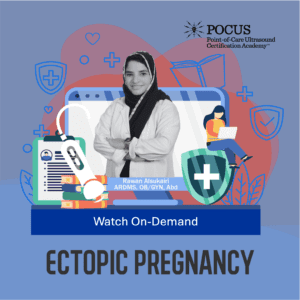According to the American Family Physician journal, ectopic pregnancy, also known as a tubal pregnancy, is the most common cause of maternal mortality in the first trimester. It occurs when a pregnancy implants outside the uterus, such as in the fallopian tube, cervix, ovary, abdomen, or even a prior C-section scar. When an ectopic pregnancy is left untreated, it can cause major internal bleeding and lead to death.
Pregnancy can only go to full-term in the uterus. Conditions outside of this organ impede development and growth. The uterus’ muscle is designed to stretch and grow as the pregnancy develops. Other organs, such as the fallopian tubes, weren’t created to expand and will eventually burst as the pregnancy progresses. The same holds true for a gestation implanted in the cervix or ovary. An ectopic pregnancy can result in a life-threatening hemorrhage if it causes the organ to rupture.
In the U.S., pregnancies developing outside of the uterus are relatively rare. The article, Ectopic Pregnancy Statistics, states that less than 50 people die yearly from an ectopic pregnancy and an estimated 1% to 2% of pregnancies are ectopic. Studies show that of pregnant patients entering the emergency department in the first trimester for bleeding, pain, or both, 6% to 16% are experiencing these symptoms due to an ectopic pregnancy.
Having an ectopic pregnancy is dependent on several health factors. The risk may be lower or higher depending on lifestyle and history. For example, being a smoker, having a previous ectopic pregnancy, or having undergone tubal surgery in that past all increase the risk of ectopic pregnancy. Pregnant over 35 years old, endometriosis, fertility treatments, and sexually transmitted disease have also been associated with causing ectopic pregnancies. Tubal pregnancies have also been known to have no related or specific cause at all.
Though contributing factors are difficult to define, the low rate of this occurring can be attributed to several aspects. For the U.S., the benefit of having relatively excellent access to healthcare compared to many developing countries influences the low rate of occurrence. Access to emergency medical systems, blood banks, and emergency surgery to provide lifesaving measures when needed are advantages that help reduce maternal mortality.
Point-of-care ultrasound (POCUS) has become one of those lifesaving measures to ensure an ectopic pregnancy does not become fatal for the mother. This isn’t just in the U.S. alone, but worldwide. The low barrier to accessing the modality and its ability to diagnose accurately and readily has made it a primary resource in cases of tubal pregnancy. POCUS has also assisted with caring well for mothers-to-be. This pocket-sized device has altered the maternal landscape by changing the narrative of maternal health to include unique regions globally.
An early diagnosis is imperative to reduce mortality caused by an ectopic pregnancy. The sooner intervention can be established, the outcome of maternal death is significantly decreased. Research indicates that the most common gestational age of diagnosis is between 6 to 10 weeks. The goal is to implement care before a rupture occurs and hemorrhaging ensues. If the diagnosis is determined to be a ruptured ectopic pregnancy, studies have shown that incorporating POCUS leads to faster time to the operating room. Therefore, resulting in the ability to administer care before death occurs.
Interested to learn more about the signs and symptoms of ectopic pregnancy? Watch our on-demand webinar with Rawan Alsukairi.

References
Creinin, M. 2022. Seven things to know about ectopic pregnancy. Children’s Health. https://health.ucdavis.edu/news/headlines/7-things-to-know-about-ectopic-pregnancy/2022/05#:~:text=If%20left%20untreated%2C%20an%20ectopic,compared%20to%20many%20developing%20countries.
Danielsson, K. 2022. Ectopic pregnancy statistics. Very Well Family. https://www.verywellfamily.com/what-do-statistics-look-like-for-ectopic-pregnancy-2371730.





















